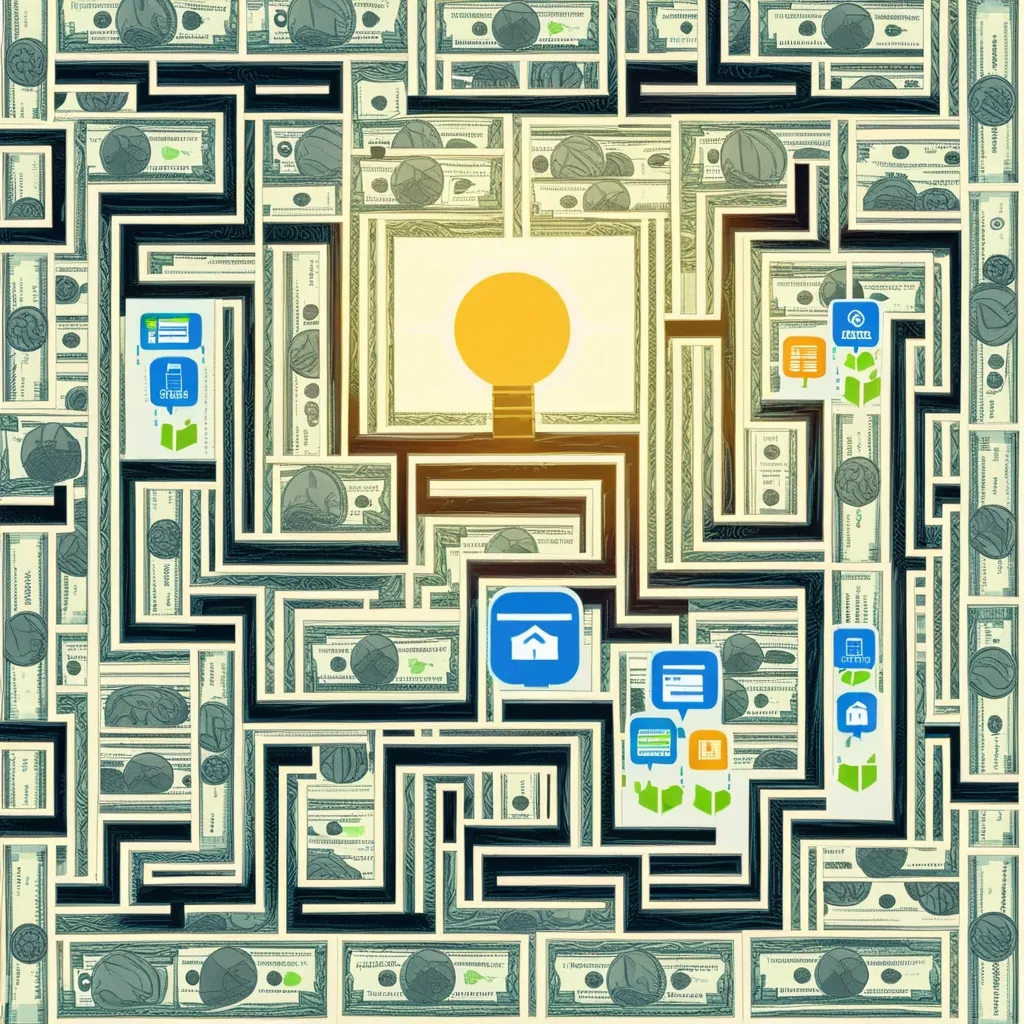When it comes to financial health, few metrics are as crucial as your credit score. It’s a number that can open doors to better loan terms, lower interest rates, and a plethora of financial opportunities. But how do you improve this elusive score? Here are some practical tips that can make a significant difference in your financial journey.
The Power of Punctuality
“Punctuality is the thief of time.” While this quote from Oscar Wilde might seem unrelated, it highlights the importance of timing in various aspects of life, including your financial health. Paying your bills on time is one of the most effective ways to boost your credit score. This habit demonstrates to lenders that you are reliable and capable of managing your financial obligations.
Imagine setting up a calendar or planner where you mark down every payment deadline. This simple act can ensure that you never miss a payment. If you can afford it, paying your bills every two weeks instead of once a month can further lower your credit utilization and improve your score. Consistency is key here; it’s not just about paying on time, but also about maintaining this habit over the long term.
The Art of Credit Utilization
Your credit utilization ratio is another critical factor in determining your credit score. This ratio is calculated by dividing your total credit card balances by your total credit limits. The lower this ratio, the better it is for your credit score. Here’s a simple rule of thumb: keep your credit utilization below 30%.
For instance, if you have a credit limit of $1,000, try to keep your balance below $300. This shows lenders that you can manage your credit responsibly without overextending yourself. If you find yourself maxing out your cards, prioritize paying down those balances first. This strategy not only reduces your debt but also improves your credit utilization ratio.
The Value of Old Accounts
“Age is just a number,” but when it comes to your credit score, the age of your credit accounts is quite significant. Keeping old credit accounts open can significantly boost your credit score. This is because the length of your credit history accounts for a substantial portion of your credit score.
Closing old accounts can shorten your credit history and potentially harm your score. So, even if you don’t use an old credit card, it’s wise to keep it open. If you must close accounts, close the newer ones to maintain a longer credit history.
The Caution of New Credit
Applying for new credit can be tempting, especially when you see those enticing offers for new credit cards or loans. However, applying for too many new credit accounts in a short period can negatively impact your credit score. This is because each application results in a hard inquiry on your credit report, which can temporarily lower your score.
So, be cautious and apply for new credit sparingly. If you need to apply for multiple lines of credit, do it over a longer period to minimize the impact on your score. Remember, patience is a virtue when it comes to building a strong credit profile.
The Importance of Accuracy
“Accuracy is the first and last condition of good writing,” as George Orwell once said. This principle applies equally well to your credit reports. Regularly reviewing your credit reports for errors is a crucial step in maintaining a healthy credit score.
You are entitled to one free credit report from each of the three major credit bureaus every year. Use this opportunity to review each report carefully. Dispute any errors you find, whether it’s a misspelled name, an incorrect address, or an account that doesn’t belong to you. Correcting these errors can significantly improve your credit score.
A Quick Fix?
While there are no quick fixes for improving your credit score, there are some strategies that can provide immediate benefits. For example, if you find errors on your credit report, correcting them can lead to a rapid improvement in your score. Similarly, paying off high-balance credit cards or setting up payment reminders can show immediate positive effects.
However, it’s important to remember that building a strong credit profile takes time. It’s a marathon, not a sprint. Consistency and patience are your best allies in this journey.
Diversifying Your Credit Mix
Your credit mix, which includes various types of credit such as mortgages, auto loans, student loans, and credit cards, also plays a role in your credit score. Having a diverse mix of credit types can help improve your score, as long as you make on-time payments.
For instance, if you only have credit cards, consider applying for a personal loan or a mortgage to diversify your credit mix. This shows lenders that you can manage different types of credit responsibly.
The Impact on Your Financial Well-Being
Your credit score is more than just a number; it’s a reflection of your financial health and responsibility. A good credit score can save you money in various ways. For example, it can qualify you for better interest rates on loans, lower your car insurance premiums, and even make it easier to rent an apartment.
In the words of Warren Buffett, “Price is what you pay. Value is what you get.” A good credit score is invaluable because it opens doors to financial opportunities that can significantly enhance your financial well-being.
The Long-Term Benefits
So, why is it so important to focus on improving your credit score? The answer lies in the long-term benefits. A higher credit score can lead to lower interest rates on loans, which means you’ll pay less over the life of the loan. It can also provide access to better credit cards with attractive rewards and perks.
Moreover, a good credit score demonstrates financial responsibility, which can be beneficial in various aspects of life, from job applications to utility setups. It’s a badge of honor that shows you’re capable of managing your finances effectively.
Conclusion
Improving your credit score is not a complex task, but it does require consistent effort and patience. By paying your bills on time, reducing your credit utilization ratio, keeping old accounts open, limiting new credit applications, and regularly reviewing your credit reports, you can significantly boost your credit score.
Remember, your credit score is a tool that can help you achieve your financial goals. It’s not the end goal itself, but a means to an end. By focusing on these practical tips and maintaining a long-term perspective, you can unlock financial opportunities that will enhance your overall financial well-being.
As the saying goes, “The best time to plant a tree was 20 years ago. The second-best time is now.” Start working on your credit score today, and you’ll be amazed at the financial opportunities that will come your way in the future.






